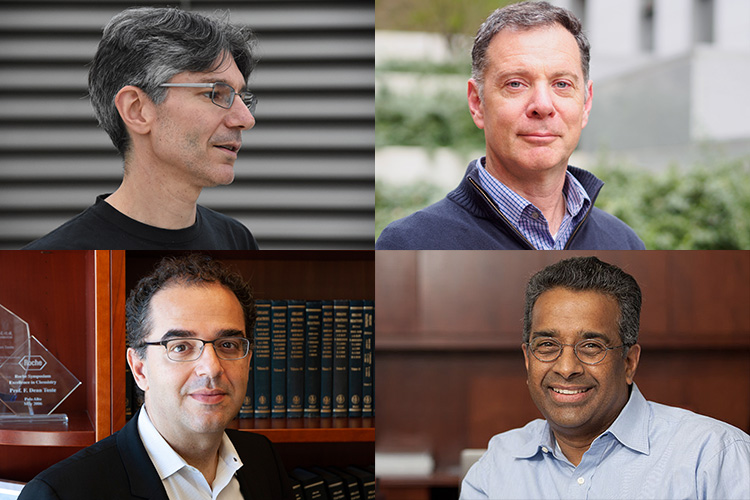National Academy, Royal Society elect new UC Berkeley members

Chemist Dean Toste, biochemist James Hurley and astrophysicist Eliot Quataert are the latest University of California, Berkeley, faculty members elected to the prestigious National Academy of Sciences (NAS), a group that has provided policy guidance to the U.S. government since 1863.
The academy announced the new members — 120 from across the U.S. and 26 international members — on Monday, April 27. Counting the three new members, UC Berkeley currently has 144 members of its faculty in the NAS. The academy now has 2,403 total U.S. members and 501 international members.
An equally prestigious and even older organization, the Royal Society in the United Kingdom, which dates from 1660, also announced its newest fellows today, naming UC Berkeley physicist Ramamoorthy Ramesh one of 10 new foreign members.
“While election to the fellowship is a recognition of exceptional individual contributions to the sciences, it is also a network of expertise that can be drawn on to address issues of societal and global significance,” said Royal Society president Venki Ramakrishnan in a statement. “This year’s fellows and foreign members have helped shape the 21st century through their work at the cutting edge of fields from human genomics to climate science and machine learning.”
Hurley, the Judy C. Webb Chair in the Department of Molecular and Cell Biology, explores the interactions between proteins and membranes that determine cell and organelle shape and the evolution of shape over time. One of his primary interests is how pathogens, such as HIV-1, subvert and co-opt these interactions.
Quataert, a professor of astronomy and of physics, is currently the chair of the Department of Astronomy. He is a theoretical astrophysicist with interests in a wide variety of phenomena, including black holes, stars, plasma astrophysics and galaxy formation.
Toste, the Gerald E.K. Branch Professor of Chemistry, leads research to develop catalysts, catalytic reactions and methods for organic synthesis of complex molecules possessing interesting structural, biological and physical properties.
Ramesh, the Purnendu Chatterjee Chair in Energy Technologies, is a professor of physics and of materials science and engineering and a faculty scientist at Lawrence Berkeley National Laboratory. He and his lab colleagues explore the properties of new materials — in particular, correlated oxide thin films and heterostructures.
The NAS is a private, nonprofit institution that was established under a congressional charter signed by President Abraham Lincoln. It recognizes achievement in science by election to membership, and — with the National Academy of Engineering and the National Academy of Medicine — provides science, engineering and health policy advice to the federal government and other organizations.
The Royal Society’s fundamental purpose, reflected in its founding charters, is to recognize, promote and support excellence in science and to encourage the development and use of science for the benefit of humanity. Other UC Berkeley foreign members of the society are chemistry professors John Kuriyan, Alex Pines and William Miller, climate scientist Inez Fung and plant biologist Brian Staskawicz. Current Royal Society fellows include former chancellor and professor of physics Robert Birgeneau, a native of Canada; chemistry professor Graham Fleming, statistics professor David Aldous and developmental biologist Richard Harland of England; and Australian-born chemist Martin Head-Gordon.
